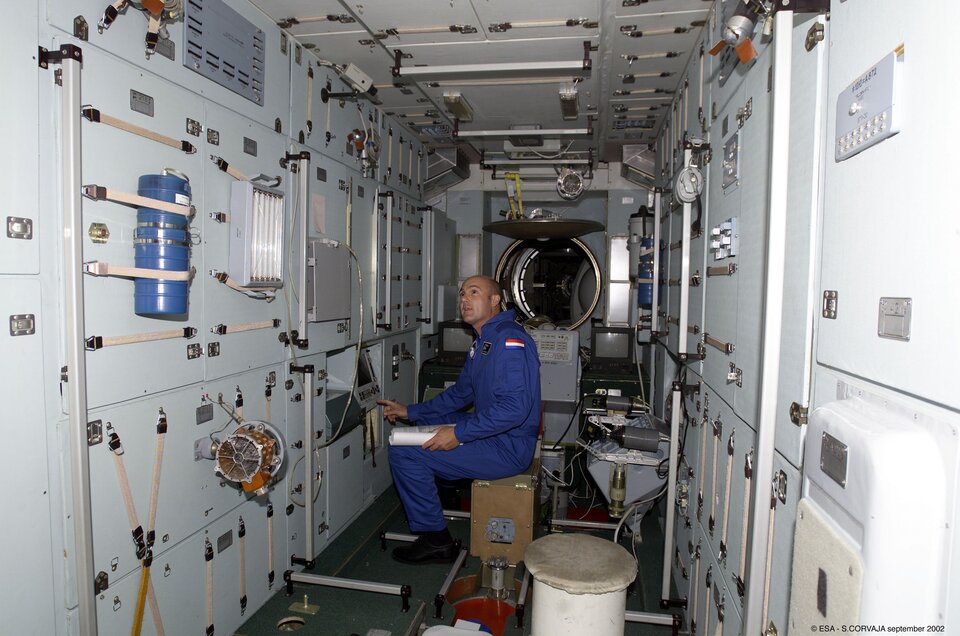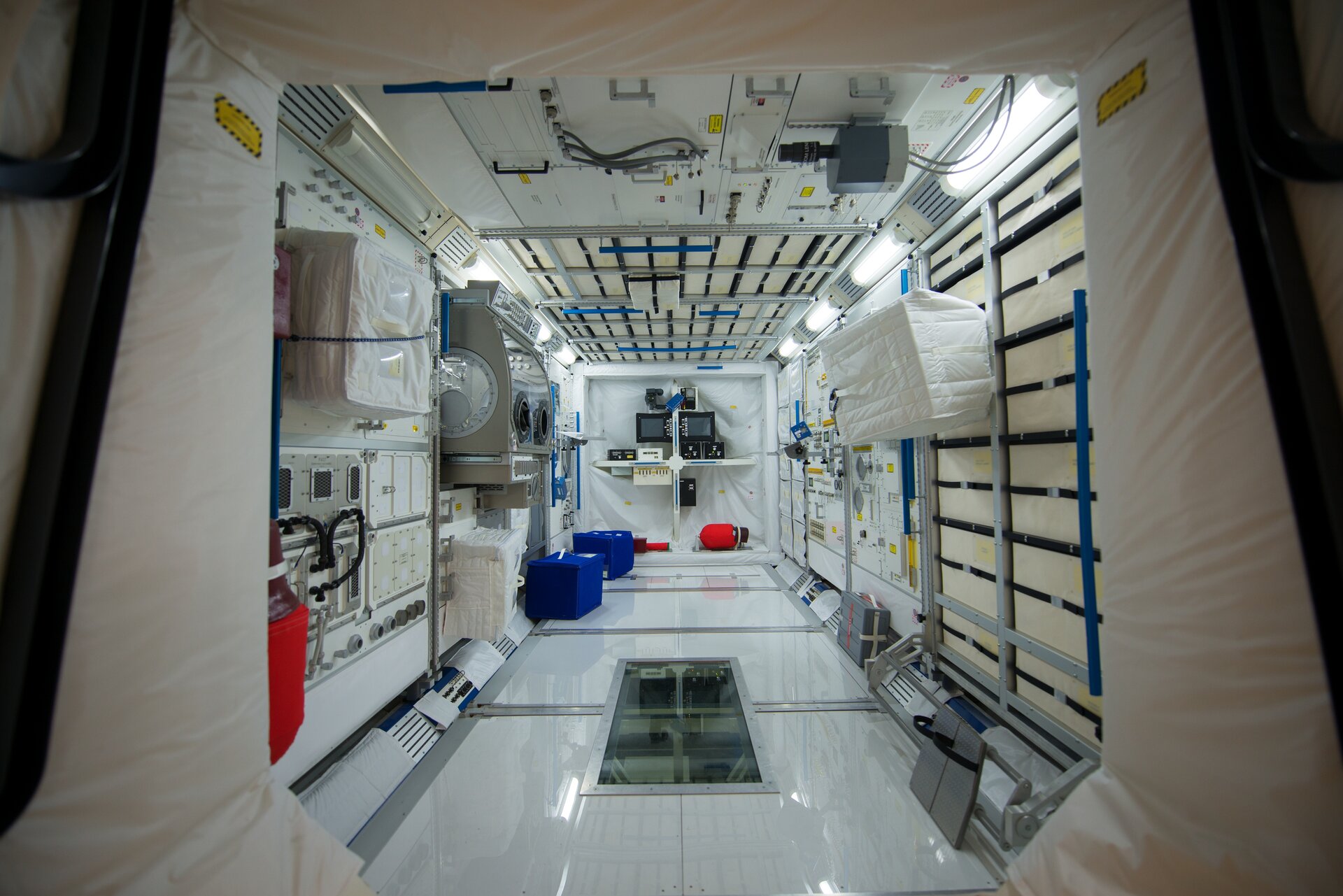Pre-assignment training
After completion of the 12-month basic training course at EAC, the astronauts start to study the ISS elements in more depth.
The astronauts learn to service, operate and maintain the different Space Station modules, systems, payloads and transport vehicles.
They also learn how to perform scientific experiments in ESA's ISS research module, Columbus, and many other aspects which are important for a flight to the ISS.
The ISS Pre-assignment Training can vary in duration and location. It is conducted in international astronaut classes and includes various training units at all ISS partner training sites.

The training centres are located at Houston, in the United States (NASA), Star City near Moscow (Russia), Tsukuba near Tokyo (Japan), Montreal (Canada) and at the European Astronaut Centre (EAC) in Cologne, Germany.
Each of the partners is in charge of providing training to all ISS astronauts on the elements which they contribute to the ISS Programme. For example, training at EAC focuses on the Columbus system and ESA experiment training.
Whereas basic training is often knowledge-based classroom training, pre-assignment training is mainly 'hands-on' using flight-like training mock-ups and simulators. Pre-assignment training is also generic, which means that the astronauts learn about systems which are important for any flight to ISS.
After basic training and during pre-assignment training, astronauts will be requested to perform duties within the Directorate of Human and Robotic Exploration, e.g. supporting other astronauts during their missions by conducting ground control operations.
Only once an astronaut completes this phase of training they become eligible for assignment to a spaceflight.


